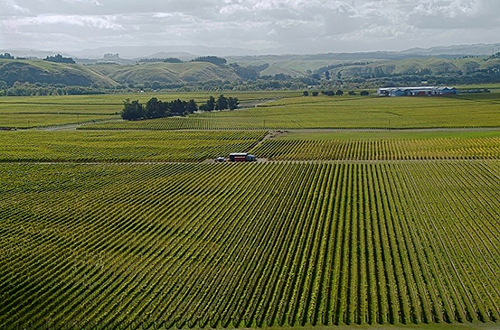
“Jesus said, “Listen to another parable. There was a landowner who planted a vineyard, put a fence around it, dug a wine press in it, and built a watchtower.
So begins our story from the Gospel of St. Matthew (21: 33 – 43)
In Tuscany, Italy, where St Catherine of Siena was born, there are miles and miles of vineyards, but they are not divided: all are one vast plantation of vines.
The neighbours know, apparently, where one ends and another begins. This is how it has been for centuries.
St Catherine (14th century) used this as an image of how we should be with others: we are ourselves, yes, we have our own space, but we are not divided from others.
This seems the right arrangement, a perfect image of harmony.
“Each one of you,” she wrote, “has your own vineyard. But everyone is joined to your neighbours’ vineyards without any dividing lines. They are so joined together that you cannot do good or evil for yourself without doing the same for your neighbours.”
To the Jews of old, the vine symbolised their own race and very identity.
God took them from the land of slavery and transplanted them in new soil: “You brought a vine out of Egypt; to plant it you drove out the nations” (Psalm 79, responsorial psalm of today’s Mass).
Some of the detail is lost in countries where the vine does not grow.
The vine is a most vigorous plant and needs severe pruning. It displays a great abundance of leaves, but only some of the branches are fruit-bearing. The ones that produce only leaves need to be cut back, otherwise, they rob life-giving sap from the others.
The wood of the vine is perfectly useless, not even good for firewood. So, it is usually just put in a heap and burnt. We get the point of what Jesus once said: “Anyone who does not remain in me is like a branch that has been thrown away – they wither; these branches are collected and thrown on the fire” (John 15:6).
In spiritual writing, we hear a lot about growth but very little about pruning.
The aspects of our life that are not fruit-bearing are for pruning so that we might bear fruit. Leaves are the plant thinking of itself; fruit is the plant thinking beyond itself: thinking of the next generation. We are to think beyond our own interests.
The sap in us is the life of Christ. It is for fruit-bearing; we are not to turn it into stuff that is not even fit to make a fire.
